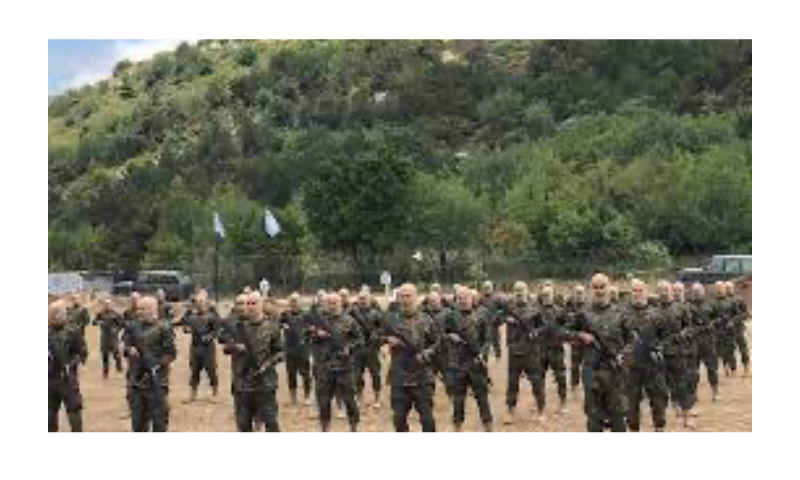Kim Ghattas
The Atlantic, Oct. 18, 2023
“The unexpectedly high Israeli death toll may be one reason Nasrallah has kept silent—he is hedging, watching to see when and how far the Israeli army will go into Gaza, and whether Hamas will face an existential threat that requires Hezbollah’s response.”
Villagers in southern Lebanon have been heading north, fearing all-out war. Most schools are closed. Israel has ordered its citizens to vacate 28 towns along the border with Lebanon. The Israeli army has exchanged fire with Hezbollah—Lebanon’s Shia political and paramilitary group—every day since October 7, resulting in casualties on both sides. Iran’s supreme leader, Ayatollah Ali Khamenei, has said, “We must respond to what is happening in Gaza”; its foreign minister, Amir Abdollahian, warned of a preemptive strike by Iran’s allies against Israel.
And yet, 12 days after the Hamas attack on Israel, the man who holds some of the cards and usually sets the tone, Hassan Nasrallah, Hezbollah’s leader, is still silent—no speeches, no interviews. For someone who loves to give fiery addresses to his followers and does so regularly, Nasrallah’s reticence is notable and can mean only one thing.
Hezbollah is keeping its powder (mostly) dry while Iran weighs its options and their possible outcomes. Israel has called up 300,000 reservists, the United States has sent two carrier strike groups to the Mediterranean, and President Joe Biden headed to the region with one word for Hezbollah: “Don’t.” For Tehran, regime survival trumps all considerations—and it requires the survival of Hezbollah in Lebanon, the Islamic Republic’s most valuable asset and a key line of its defense. Every Israeli strike on Gaza, every mass-casualty event, will factor into the calculation as both Iran and Hezbollah assess their next moves.
Washington has said it has no evidence directly linking Tehran to the Hamas attack, but a long-standing, though not always easy, relationship binds the Palestinian group to the Iranian regime. Tehran supplies weapons and money to Hamas, and Hezbollah is reported to have provided training. Over the past year, the head of Iran’s paramilitary Quds Force, General Esmail Ghaani, worked to coordinate Iran’s proxies, and Nasrallah has spoken often this year of the unification of fronts. The order to initiate the attack may not have come from Tehran, but Hamas could have had a sort of blanket approval for efforts to launch such an operation. Tehran may have little understood what the attack would unleash. Despite Abdollahian’s bombast, the so-called axis of resistance appears somewhat stunned by its own horrifying success, which was in part made possible by Israel’s slow response on the day of the attacks. … [To read the full article, click here]


